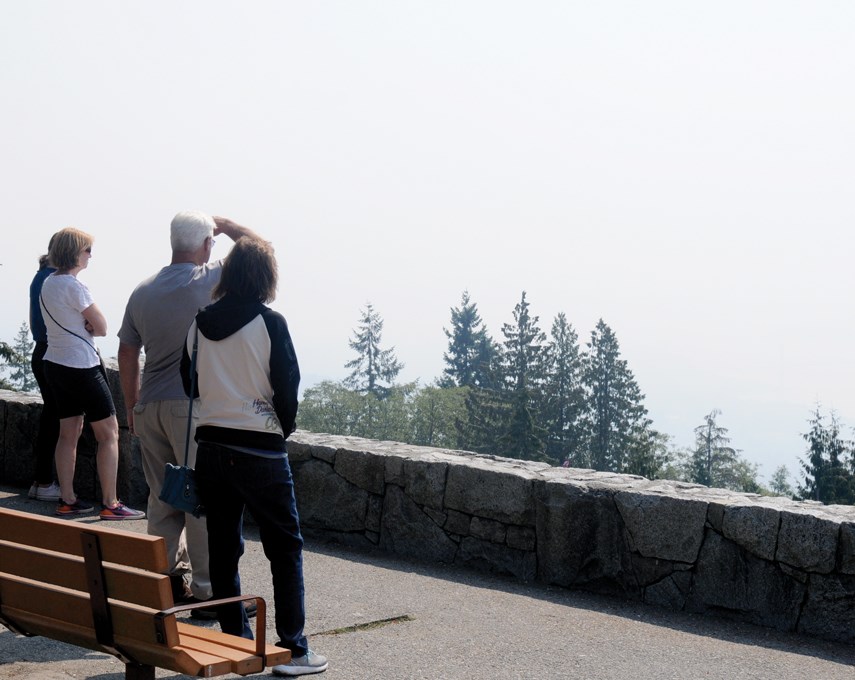The smoke dome enclosing the North Shore may begin to break up and blow away Wednesday evening, according to Environment Canada.
“We’re going to start to see a shift in the wind pattern … which will eventually bring cleaner ocean air back over the coast,” said Environment and Climate Change Canada meteorologist Lisa Erven.
B.C. wildfires spewed smog across the region over the weekend, prompting Metro Vancouver to issue a series of air quality alerts advising residents to stay indoors and avoid strenuous activities.
On Monday, the amount of fine particulate measured at Metro Vancouver’s Horseshoe Bay and Mahon Park air quality stations on Monday was 10 times more than was recorded at the same stations one month earlier. Smoke was thickest at the North Vancouver Second Narrows station, where Metro Vancouver recorded 19 times more particulate matter than they’d found on July 20.
The highest concentrations of particles tend to be found near busy roads, industrial operations and major ports.

While thin enough to penetrate both lungs and bloodstream, the smoke particles also tend to reflect and scatter sunlight, resulting in cooler temperatures during the day, according to Erven. But even if the smoke clears, Metro Vancouver residents will likely be reaching for warmer clothes by the weekend, according to Erven, who said a cold front is expected to sweep southward. There is also a 30 per cent chance of showers on Thursday and Friday.
“We should be looking at an improvement in air quality condition for late this week,” she said.
Until blue skies start smiling, health authorities are recommending infants, pregnant women, and sufferers of asthma and diabetes limit their time outdoors. Vulnerable people should stay in cool, air conditioned spaces like rec centres or public libraries, according to a release from Metro Vancouver. Air cleaners like HEPA filters are also recommended for reducing indoor particulate matter. Vacuuming, however, is not recommended as it can kick up more particulate than it removes.
Anyone experiencing shortness of breath, chest pain or irritated airways should contact their health care provider, according to a release from Vancouver Coastal Health.
But for anyone braving the grey outdoors, barbecues are banned in all North Shore parks, trails and beaches.



